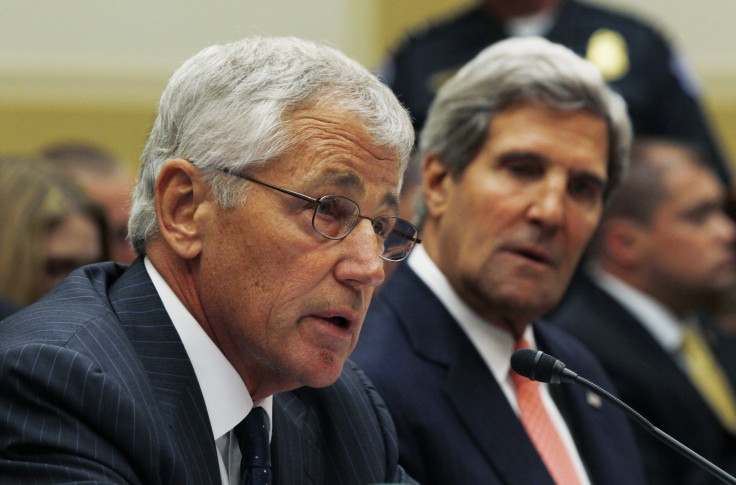Obama Wants 'Trigger' To Allow Future Strikes In Syria

The Senate Foreign Relations Committee has approved 10 to 7 a resolution authorizing military action in Syria. The resolution now goes to the full Senate, where it may not face an easy path given bipartisan opposition to the measure, which was rejected by two Democrats (Tom Udall and Chris Murphy) as well as five Republicans, including two potential 2016 presidential contenders, Marco Rubio and Rand Paul.
The Obama administration wants Congress to approve not only a single response to the use of chemical weapons in Syria, but also subsequent strikes if the regime of Bashar Assad continues to deploy these weapons.
This is emerging as a potential area of conflict as the administration tries to persuade Congress to pass a resolution authorizing the use of force to go after Assad’s chemical weapons capabilities. Secretary of State John Kerry told the House Foreign Affairs Committee Wednesday that the Obama administration would like an authorization of force in Syria to include a “trigger” provision to allow subsequent strikes without additional Congressional approval.
The Obama administration is seeking authorization from Congress to retaliate against the use of chemical weapons attacks believed to be carried out by the Assad regime. But if the regime is believed to use chemical weapons again, after a strike by the United States, the administration does not want to return to Congress for a second authorization in order to respond.
In a draft resolution sent to Congress, the administration placed no time limit on the authority Congress would grant. That resolution was considered too broad by members of both parties. After a hearing before the Senate Foreign Relations Committee Tuesday, committee members drafted a revised resolution that limited the authority to 60 days, with a possibility to extend it an additional 30 days.
Asked about the 60-day time limit during the Wednesday hearing, Kerry expressed concern. In order to essentially get around the time limit, Kerry said, the administration “would prefer you have some kind of trigger in there,” so that if Assad uses chemical weapons again, “we could respond to that."
Essentially, then, the resolution would allow a military strike not once but any time Assad allegedly uses chemical weapons.
In Tuesday’s Senate hearing, Kerry described the purpose of a strike on Assad as two-fold, to send a message that the use of chemical weapons will not be ignored, and to degrade Assad’s chemical weapons capabilities.
Even without Congressional approval, however, the Obama administration has maintained it has the constitutional authority to carry out a strike on Assad. Despite President Obama’s surprise decision last week to seek congressional approval, Kerry maintains that the president could carry out a strike without approval. Given that fact, even if Congress passes a resolution with a time limit and no trigger (at this point, whether any resolution will pass is still unknown), the administration would likely claim the authority to strike again without returning to Congress.
The administration’s message to Congress this week has stressed a limited engagement that will not involve boots on the ground or a prolonged role in Syria’s civil war. Nevertheless, the administration is seeking an authorization that could potentially allow strikes months or even years into the future. "Not to say I discount the risk of escalation, which I can never discount, but we've mitigated it to as little as possible,” said Gen. Martin Dempsey, chairman of the Joint Chiefs, who testified Wednesday alongside Secretary Kerry.
© Copyright IBTimes 2024. All rights reserved.






















